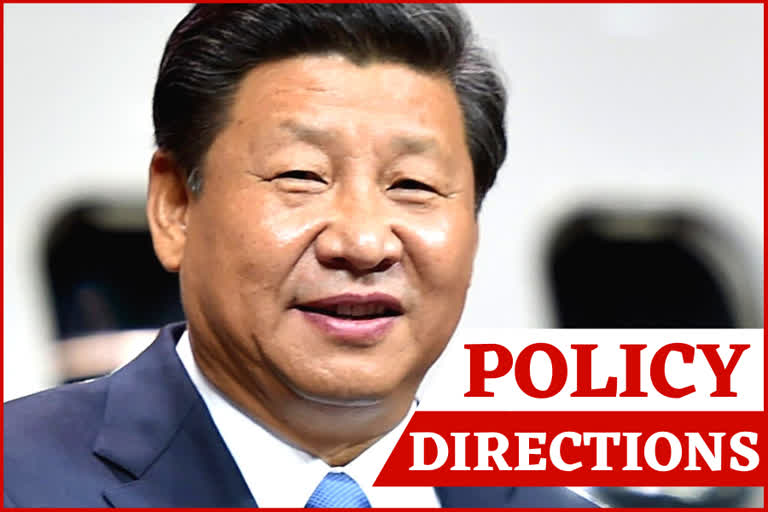Beijing:Chinese President Xi Jinping has called for building a new modern socialist Tibet, constructing an "impregnable wall" against separatism in the sensitive Himalayan region and "sinicisation" of Tibetan Buddhism, the official media reported on Saturday.
Xi, also the General Secretary of the ruling Communist Party of China (CPC), in his address to the seventh Central Symposium on Tibet Work, said that efforts must be made to build Tibet that is united, prosperous, culturally advanced, harmonious and beautiful, Xinhua news agency reported.
Underlining the need to fully implement the CPC's policies on governing Tibet for a new era, Xi, in a comprehensive address on the Himalayan region, called for efforts to build a new modern socialist Tibet.
He told officials attending the two-day symposium that they should make efforts to ensure national security and enduring peace and stability, steadily improve people's lives, maintain a good environment, solidify border defence and ensure frontier security, the report said.
Read |Defying China, Czech delegation arrives in Taiwan
Tibet, officially referred to as the Tibet Autonomous Region (TAR), remained deeply devoted to Buddhism where the Dalai Lama is revered as the spiritual head despite his self-exile to India since 1959 after China took control of the region in 1950. It also shares borders with India, Bhutan, and Nepal.
President Xi said that the work in Tibet must insist on maintaining the unity of the motherland and strengthening national unity as the focus.
It is necessary to strengthen the education and guidance of the masses, extensively mobilise the masses to participate in the struggle against separatism, and form an impregnable wall for maintaining stability, he said.
Read |Dawood Ibrahim not our citizen, says Dominica govt
While Beijing views the Dalai Lama as a separatist and splittist who seeks to split Tibet from China, the 1989 Nobel Peace Prize laureate says he only seeks greater rights for Tibetans, including religious freedom and autonomy.
The 14th Dalai Lama fled to India in 1959 following a crackdown on an uprising by the local population in Tibet. India granted him political asylum and the Tibetan government-in-exile is based on Dharamsala in Himachal Pradesh since then.
